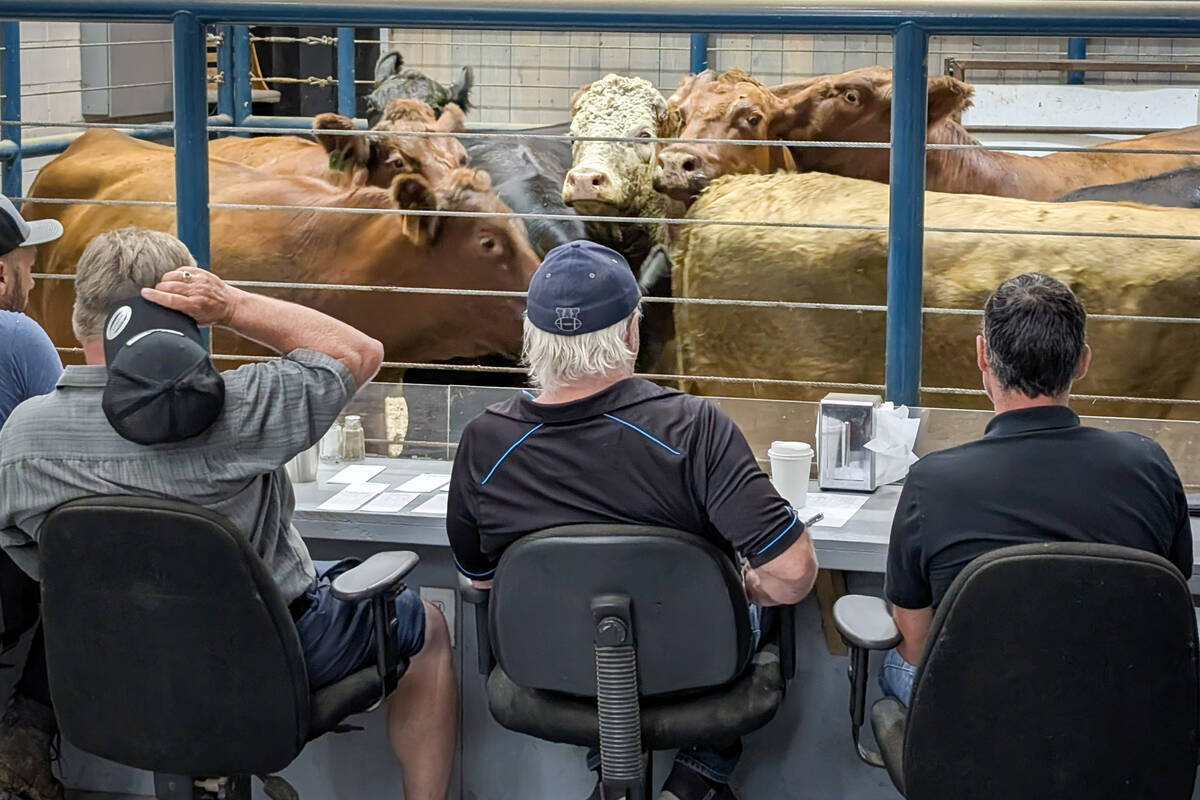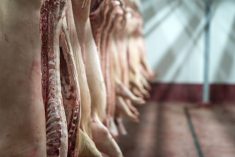Meat processing giant Tyson Fresh Meats will no longer accept cattle fed the supplement Zilmax as of Sept. 6.
The United States based company sent a letter to cattle feeding operations earlier this week, stating there have been recent problems where cattle entering processing plants were lame or could not move. It based its decision on information that the additive containing zilpaterol could cause lameness and decided to stop its use as an interim measure.
“It is not about a food safety issue,” the company said in the letter.
Read Also

U.S. livestock: Cattle rally, hogs slide
Chicago cattle futures regained a ground on Monday to maintain a fairly level trajectory after last week’s fall.
“It is about animal well being and ensuring the proper treatment of livestock we depend on to operate.”
Zilmax is manufactured by Merck and has shown positive results with higher red meat yield and better weight gain when fed for the last 20 days of finishing.
In a statement, Merck said it does not believe the product is responsible for the problems Tyson has observed.
“Tyson itself points to the fact that there are other possible causes and that it does not know the specific cause of the issues it recently experienced. We will continue to work with Tyson to help it identify those other causes,” said the company.
Cargill Meats has accepted beef cattle fed the supplement Zilmax since the late spring of 2012 even though it had past concerns about
decreased tenderness resulting from its use.
“It’s taken us a few years to accept cattle fed Zilmax because we wanted to be certain that best practices were being followed to ensure beef quality was not being adversely impacted,” said a statement from Cargill’s corporate communications division.
It has no plans to change its cattle procurement practices.
JBS has not responded to requests for a statement.
Zilmax has been approved for use in Canada and the U.S. since 2004 and about 75 percent of American beef cattle are fed products like Zilmax.
There has been little specific research on the animal welfare connections, said Reynold Bergen of the Beef Cattle Research Council.
“These anecdotal reports are coming in and they are getting maybe more consistent that the lameness thing needs to be looked at the most closely,” he said.
The impacts on Canadian producers are likely minimal because few are going to Tyson, however it could have a larger impact on the industry because of the uncertainty over what is really happening with these products.
“There don’t seem to be many implications on the quality side but things like welfare concerns can cause real public confidence issues,” Bergen said.
“When things like this come up we have got to get real answers to them.”
A Canadian study at the University of Guelph, Ont., found that overall average daily gain and feed efficiency was more than 20 percent higher for grain finished cattle.
A study from the University of Wisconsin found Zilmax and Optaflexx, available from Elanco Animal Health, had positive affects on gain but suggested cattle with poor skeletal structure could have lameness problems due to the added muscle growth.















